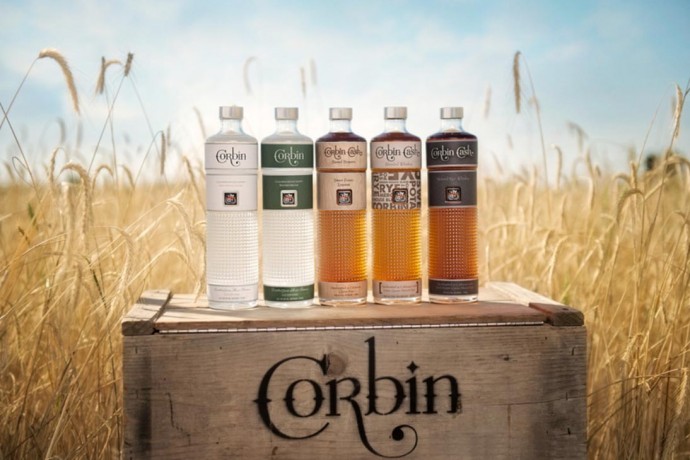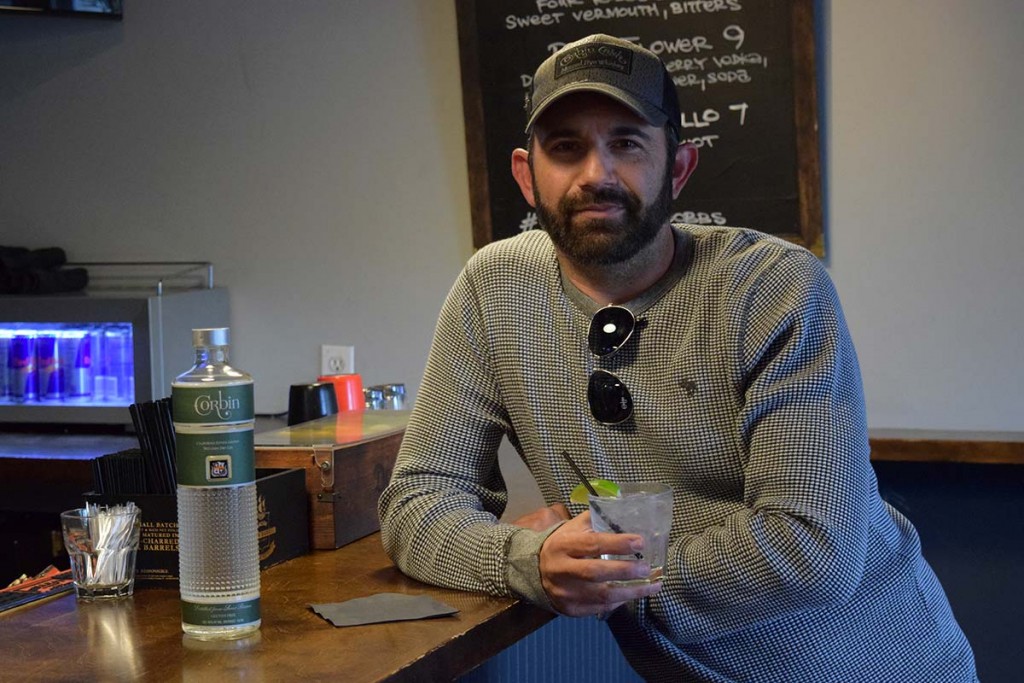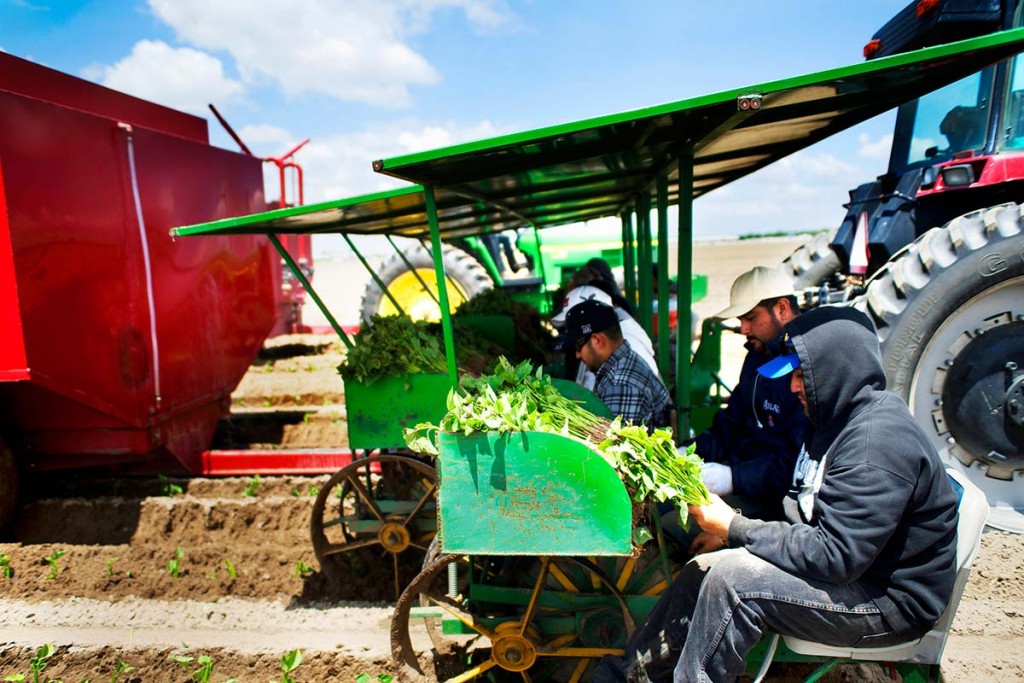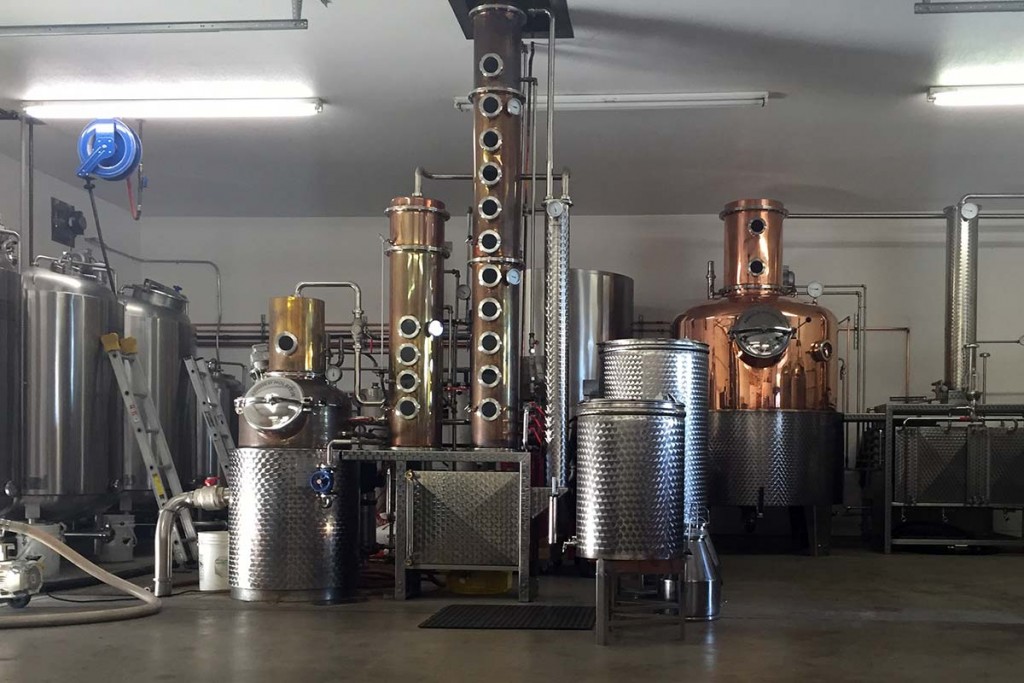For years, farm-to-table has been one of the central buzzwords of the foodie scene. The farmers market is king once again, and home chefs have become as conscious of environmental issues as they are of the culinary benefits of high-quality produce. So perhaps it was only a matter of time before the idea made its way into the world of craft spirits, where a parallel farm-to-bottle movement is gradually taking hold. There are few producers who embrace the concept quite as thoroughly as David Souza, creator of Corbin Cash, a brand of spirits distilled from the sweet potatoes his family has grown on their California farm for nearly 100 years.
Why Sweet Potato Spirits?
Souza’s farming roots run deep. He was born and raised on his family’s farm in Atwater, CA, just north of Merced in the San Joaquin Valley, and spent much of his childhood learning the ins and outs of growing sweet potatoes, rye, and almonds. “I started in the field when I was seven,” he said, “and by the time I was 15 my grandpa had helped me get going on my own, so I started farming sweet potatoes for two years with him. Then he went back into semi-retirement, and I was farming on my own until I was about 26.”
From there, though, he decided that he wanted to branch out into a career that offered a little more excitement. He made his way to Las Vegas, where he bought three franchise restaurants and started a promotion company, and ended up working closely with a number of food and beverage management firms. “These companies were selling bottle service like crazy. The problem was, most of what they were selling was swill,” he laughed.
“I thought, why aren’t we pushing our own stuff? That’s where the idea came from. So I talked to my counterparts and told them that I was going to come back here and learn how to make vodka out of something that I grew: sweet potatoes. Nobody was doing it, so I knew it could be something unique, and I planned to bring it back to Vegas and we’d sell it there.”
First, though, Souza had to learn how to distill with essentially no prior experience. “I started by getting a book on distilling off of the internet, and from there I just did it every. Single. Day. For a year and a half. Every day I was cooking, and I would start distilling as soon as fermentation was done. I’d get off at six, go home, and for a while I think my dad thought I was on drugs,” he chuckled. “We’d start at 5:30 in the morning, and he’d always be asking me, ‘Did you sleep last night? You look all worn out.’ Little did he know, I was sleeping in my lawn chair in the garage so I wouldn’t burn my house down with the still.”
While that’s always a bit of a concern when it comes to distilling, Souza’s situation was somewhat more precarious—he built the still himself. “I bought some parts off the internet, and then I just kinda put it together. I had two miniature beer kegs welded together, that was my pot. I used a little electric cookstove, some two-inch copper pipe, and then I found a little condenser online and married that to the pipe. It was about a $1200 project.
“The stuff that came off of it was definitely not perfect, but it tasted pretty good for not being filtered—it had a pretty decent flavor profile,” he explained. “But the one thing I was concerned about was the amount of alcohol I was getting. The reason most people don’t use sweet potatoes is that it was taking me 25 pounds of them just to get one 750 ml bottle. We tested the ten different varieties that we raise, and I discovered that some produce more alcohol, while others taste better. That’s why I use a varietal blend rather than a single varietal.”
A Farm-to-Bottle Brand
Unfortunately, Souza’s original vodka never really caught on. Sold under the name High Roller Vodka, it had trouble competing with the brands that had already entrenched themselves in the casinos. “It sold great in restaurants, but you can’t build a spirit brand in Vegas by only selling in restaurants. A friend of mine worked for one of the casinos and told me that their brand sponsorship would be opening up at the end of the year, and said I should look into taking it over. The only problem was that it cost $250,000 a year.”
After it became clear that High Roller wasn’t going to take off in that kind of pay-to-play market, Souza decided to liquidate the brand and focus instead on a spirit he was more passionate about: a sweet potato whiskey. He re-branded his vodka under the new label of Corbin Cash, named after his son, and set out to build an identity around the farm that he knew so well. But while the launch of their vodka and rye whiskey went fairly smoothly (the first run of rye sold out in two weeks), the sweet potato whiskey had a rockier start.
“I put all of my eggs in the basket of barrel-aging the sweet potato whiskey. I got it all ready to go, went to the TTB, and the first thing they said was that you can’t make whiskey from sweet potatoes. I said, why not? It was distilled using the same process and aged the same way, but they said it simply came down to the fact that it has to be made from grain, legally speaking. Well, then what was I supposed to do with all this sweet potato whiskey I’d spent years aging?” he said, laughing.
“I started looking into my options, and it occurred to me that we could make a sweet potato liqueur. I really didn’t want to make an overly sweet, syrupy type of thing, so we ended up going with the minimum amount of sugar possible that would still allow it to be classified as a liqueur. I decided to base the recipe off of my mom’s sweet potato squares, this great dessert she makes, so we use the same baking spices that I remember from my childhood. The idea was to make it finish like a whiskey, though, and I think we did a pretty good job of that.”
But Souza still had his heart set on a sweet potato whiskey. “We did some research and learned that, legally speaking, a blended whiskey can be comprised of up to 80% neutral spirit. So we decided to take the sweet potato spirit—which the TTB had classified as a neutral spirit—and blend it with the rye to create our blended whiskey. We age them separately, then barrel-blend them to get the right flavor profile. We were looking to make something more like a bourbon, so that it would really be differentiated from our rye.”
Growing the Operation
With their portfolio of five products—vodka, gin, rye whiskey, sweet potato whiskey, and sweet potato liqueur—Corbin Cash has grown significantly in the last few years, but their operation still maintains the down-to-earth personality it has embodied since the beginning. Including sales reps and Souza himself, the distillery consists of just nine full-time employees.
“When it comes down to it, you don’t need a lot of people to make booze,” he told us. “Most of the labor is in the bottling and hand-labeling, so when we do that I actually bring in people from the farm to help out. People are impressed when they come tour, though, because it doesn’t seem like we can make all that much out of our little, 4000-square-foot facility. But when I’ve visited some of the biggest distilleries in the country, like Jack Daniel’s, the one thing I was always struck with was how many people they didn’t have.”
That said, the small facility may be getting a bit too cramped for their growing production. “We got a new still recently, which has really cut down on the production time and allowed us to have a much higher output. I think we’re getting pretty close to outgrowing our current setup.”
Even after his brand’s successes, Souza still hasn’t lost his taste for experimentation. “We’re working on some older whiskeys, some older rye, and probably some really reserve, single-barrel and overproof expressions. I’m also working on a brandy, and I’m collaborating with a Napa winemaker to source the grapes and develop the recipe. I really believe that brandy is going to be the next big spirit to have a heyday.” Given his prescience about the renaissance of rye, we wouldn’t be surprised if that turned out to be the case.
While Souza’s agricultural background sets him pretty squarely apart from many other distillers, it also seems to have given him the insight to continue creating a line of spirits that are truly unique. And fortunately for him, Corbin Cash has hit a degree of commercial success that’s big enough to support his innovative spirit without dampening it.
“What can I say, I’m a hard-headed Portuguese dude,” he said, laughing. “When I get my heart set on something, I’m going to see it through.”
Feature Photo: Sweet Potato Spirits






